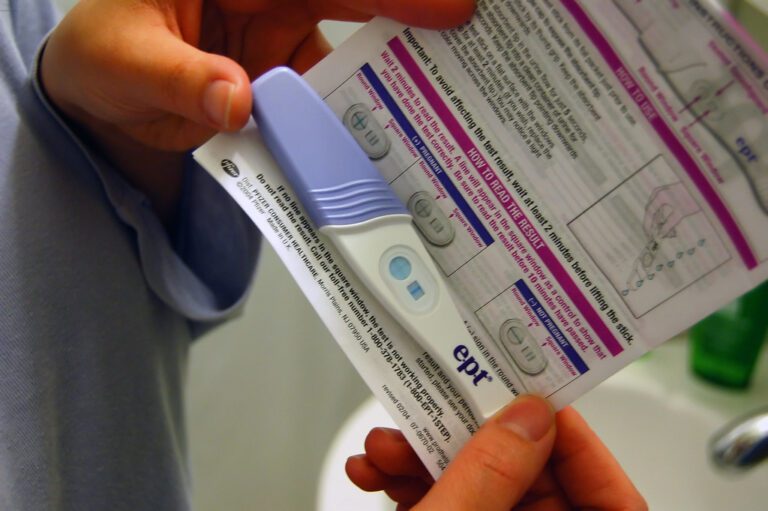Nurturing Pregnancy And Emotional Changes: A Useful Guide 101
As a woman who has experienced pregnancy and emotional changes firsthand, I can attest to the fact that it is a unique and complex journey that brings about significant body changes and emotional states. From missed periods and morning sickness to weight gain and mood swings, pregnancy and emotional changes involve a range of symptoms and stages that require specialist care and treatment.
As exciting as it can be to bring a new life into the world, it is also a time of uncertainty and vulnerability. As such, it is important to understand how to manage the physical changes that come with pregnancy and emotional changes as well as the ups and downs that can occur.
In this article, we will explore the different stages of pregnancy and emotional changes that come with it. We will also delve into the importance of seeking help for depression and mental health conditions during pregnancy.
Whether you are a first-time mother-to-be or have been through the journey before, this article aims to provide helpful information and support for navigating the rollercoaster of pregnancy. So buckle up and let’s dive in.
Key Takeaways
– Pregnancy involves a range of physical and emotional changes that vary from woman to woman.
– Symptoms of pregnancy include missed periods, tender breasts, and morning sickness, which can be managed through various techniques.
– Pregnancy is divided into three trimesters, each with its own set of physical and emotional challenges.
– Mental health conditions during pregnancy and emotional changes , such as depression and anxiety, require specialist care and treatment to ensure the health and wellbeing of both mother and baby.
Stages of Pregnancy And Emotional Changes
During my pregnancy, I learned that there are three stages of pregnancy: the first trimester, characterized by fatigue and morning sickness; the second trimester, with less fatigue but anxiety about tests and cravings for certain foods; and the third trimester, bringing discomfort and weight gain from the baby, amniotic fluid, placenta, blood, and uterus.
In the first trimester, I experienced extreme fatigue and morning sickness, which made it difficult to function normally. I found it helpful to take frequent naps and eat small, frequent meals throughout the day to manage my symptoms.

During the second trimester, I felt less fatigued but became anxious about the various tests and screenings that I needed to undergo. I also noticed that I had cravings for certain foods, which was a new experience for me.
In the third trimester, I experienced discomfort due to the weight of the baby, amniotic fluid, placenta, blood, and uterus. However, I found comfort in knowing that I was nearing the end of my pregnancy and would soon meet my baby.
Managing Morning Sickness
To manage morning sickness, I can try drinking fluids, sucking on ice, eating small amounts of food, and avoiding certain smells and foods. It can hit at any time and usually lasts from week 6 to week 14 of pregnancy. I know from personal experience how uncomfortable and debilitating it can be.
Here are four tips that have helped me manage my morning sickness:
1. Keep crackers or plain toast by your bedside and eat them before getting out of bed in the morning.
2. Sip on ginger tea or ginger ale throughout the day.
3. Try acupressure wristbands, which can help alleviate nausea.
4. Don’t be afraid to seek medical help if your morning sickness is severe and prolonged. Your healthcare provider can advise you on safe and effective treatments.

Remember, morning sickness is a common experience during pregnancy and emotional changes , but it’s important to take care of yourself and seek help if needed. You’re not alone in this journey, and there are resources available to support you.
Emotional Health during Pregnancy
Managing my emotional health during this time is important for both my well-being and the health of my baby. It’s normal to experience a wide range of reactions during pregnancy and emotional changes, from excitement and joy to fear and anxiety. However, if these emotions become overwhelming and begin to interfere with my daily life, it’s important to seek help from a healthcare professional.
Depression and anxiety are common during pregnancy and emotional changes, affecting about 15% of women. Symptoms may include feeling sad, anxious, or irritable, having difficulty sleeping or eating, and losing interest in activities. It’s crucial to seek treatment for these conditions, as they can have negative effects on both me and my baby.

Safe and effective treatments are available, including talk therapy and medication, and it’s important to remember that seeking help is a sign of strength. Taking care of my emotional health during pregnancy will not only benefit me, but also my growing baby.
Frequently Asked Questions
What are some common complications that can occur during pregnancy and emotional changes?
As a healthcare professional, I want to inform you that some common complications that can occur during pregnancy include gestational diabetes, preeclampsia, preterm labor, and miscarriage. It’s important to seek medical care if you experience any concerning symptoms.
How can a pregnant woman maintain a healthy diet and exercise routine?
To maintain a healthy diet and exercise routine during pregnancy and emotional changes , I consult with my healthcare provider to create a plan tailored to my needs. I make sure to eat a balanced diet and engage in low-impact exercises such as walking or swimming.
What are some ways that a partner or support person can help during pregnancy?
As a support person during my partner’s pregnancy, I can help by attending appointments, offering emotional support, and helping with household tasks. Encouraging healthy habits and being understanding of mood swings can also make a big difference.
Are there any natural remedies that are safe to use during pregnancy for common ailments like headaches or back pain?
During pregnancy, it’s important to be cautious when using natural remedies for common ailments like headaches or back pain. Always consult with a healthcare professional before trying any new remedies to ensure they are safe for both you and your baby.
What should a pregnant woman expect during labor and delivery, and how can she prepare for it?
During labor and delivery, I can expect contractions, pushing, and possible interventions like epidurals or c-sections. To prepare, I can take childbirth classes, create a birth plan, and discuss options with my healthcare provider.







